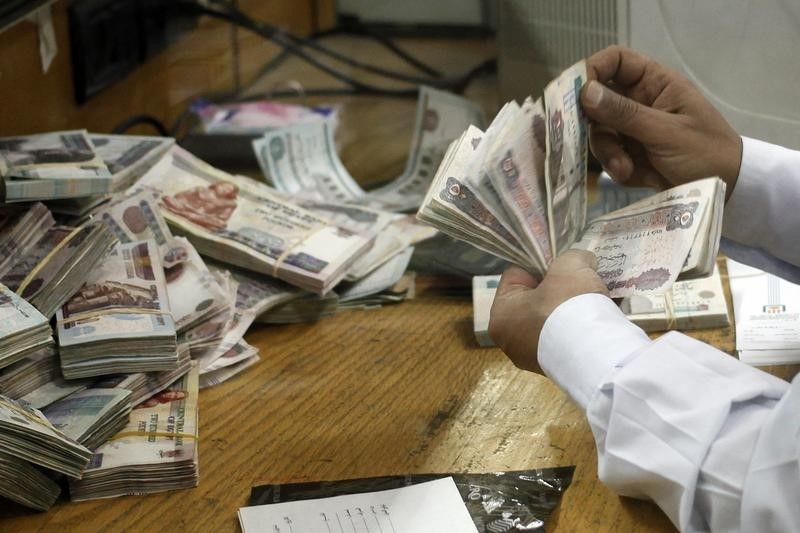Latest NEWS
- Aswat Masriya, the last word
- Roundup of Egypt's press headlines on March 15, 2017
- Roundup of Egypt's press headlines on March 14, 2017
- Former Egyptian President Hosni Mubarak to be released: lawyer
- Roundup of Egypt's press headlines on March 13, 2017
- Egypt's capital set to grow by half a million in 2017
- Egypt's wheat reserves to double with start of harvest -supply min
- Roundup of Egypt's press headlines on March 12, 2017
Procter and Gamble optimistic over Egypt's economic recovery

An employee counts money at a bank in Cairo September 4, 2014. REUTERS/Asmaa Waguih
By Michael Georgy
CAIRO (Reuters) - Procter & Gamble
Mohamed Sultan, general manager and vice president, Near East, expressed confidence that stability had returned to the Arab country with its huge market of about 90 million people.
"Within three years Egypt can be posting these numbers," he said, referring to economic growth of 5-7 percent Egypt achieved before the ouster of president Hosni Mubarak, compared to 2-3 percent now.
Egypt is trying to secure its fragile recovery by conveying an investor-friendly image in the run-up to an investment conference in March.
Sultan declined to give any profit forecasts or details on Procter & Gamble's investment plans in the country but he was cautiously optimistic.
"I think we have been through the worst. We are able to do business. That gives you confidence. I think we are heading in the right direction," he told Reuters in an interview.
Egypt's currency is a critical factor for foreign investors, particularly the persistence of a black market and constraints on dollar outflows.
Sultan said exports allowed his company to secure funds but stressed that dealing with the foreign exchange issue would make Egypt more attractive to foreign investors.
"The biggest challenges for big companies is the dollar," said Sultan. "A number of ideas are being studied with the banks that will make access to forex easier."
Procter & Gamble, one of the biggest non-oil sector investors in Egypt, sees growth potential in household detergents and cleaning products as well as the diaper market.
"Consumption per capita is still quite low compared to neighboring markets," Sultan said.
Procter & Gamble exports 35 percent of its products to 37 countries, he said. It believes Africa offers the most growth potential, especially Kenya.
Cheaper imports from Turkey, Malaysia and China, meanwhile, are posing a challenge in Egypt, Sultan said.
(Editing by Jane Merriman)










